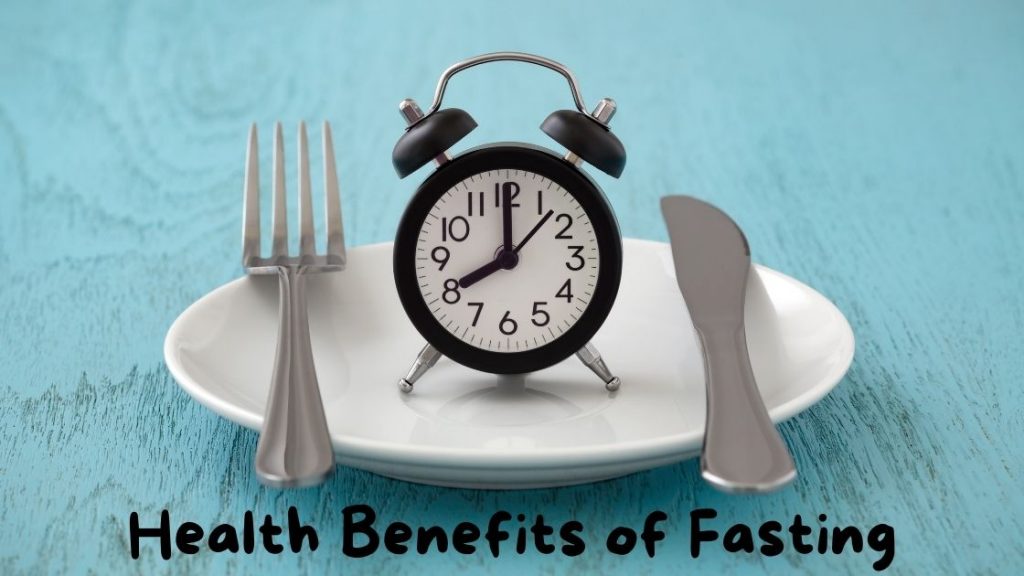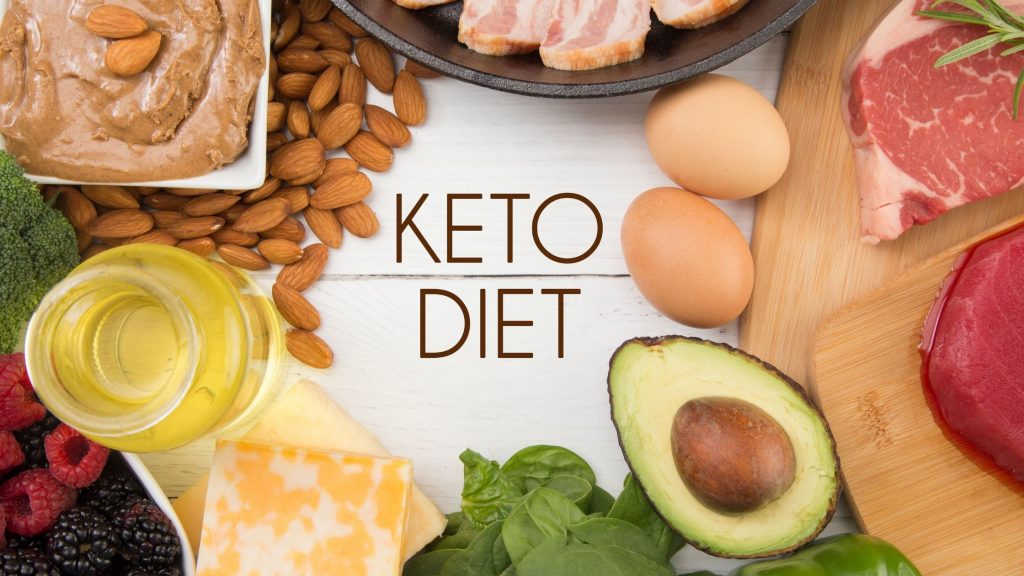A Beginner’s Guide to Fasting
Obesity and overweight have become major health concerns all over the world. People are looking at various remedies to get rid of excess weight because excess weight can lead to many fatal diseases. Apart from exercise and dieting, people are also looking at fasting to get rid of the extra weight.
Fasting is fast becoming the latest trend of dieting. Apart from reducing weight, fasting offers many other health benefits.
What is Fasting?
Fasting is the deliberate shunning of all or some foods or drinks for an extended period of time. But remember that fasting is controlled and voluntary – it is not an obligation.
Sometimes, fasting is thought to be detrimental to health, and due to the social stigma attached to it, health practitioners are afraid of recommending it.
However, fasting does not necessarily mean you or your body has to suffer. Eliminating certain foods and replacing them with others without curbing the diet can also be a form of fasting.
In short, when used sensibly, fasting offers some incredible health benefits, and can be a simple means of managing weight and preventing disease.
History of Fasting
Several extremist methods of dieting exist today, many of which offer only short-term benefits. Many of these dietary approaches don’t work in the long-term. On the other hand, fasting is an ancient practice, and to date, remains part of practically every major religion in the world.
In ancient Greece, people engaged in it as a religious practice. Fasting has also been a part of Indian culture since time immemorial. The spiritual side of fasting aims to purify the body and mind.
Furthermore, yesteryear civilizations had to undergo fasting purely as a result of their lifestyle. Because our ancestors were hunters and gatherers and to forage for food, they went without food for a considerable time.
Fasting has been around since the beginning of civilization and has undoubtedly withstood the test of time.
Let’s look at the fantastic benefits of fasting for your body, the different ways of fasting, and how to start fasting.
1.Weight Loss
Several scientific studies have shown that fasting is an effective strategy for weight-loss. Your body burns fat cells during fasting. Additionally, fasting increases fat loss more effectively than calorie restriction.
Lipolysis is the primary mechanism by which your body breaks down fats to make them absorbable and usable. There are two types of lipolysis – gastrointestinal lipolysis and adipocyte lipolysis. In gastrointestinal lipolysis, which takes place during digestion, dietary fats are broken down.
Adipocyte lipolysis occurs when the body needs energy (during exercise or fasting) but cannot obtain it directly from the diet. During adipocyte lipolysis, your body burns fats (fats are oxidized) stored in adipose tissue. This process is referred to as ‘fat-burning.’ Moreover, when you expend more energy during fasting, there is an increased adrenaline and noradrenaline production, which makes you more alert and energetic.
Another way fasting helps you to lose weight is through insulin. The hormone insulin is responsible for the storage of excess food energy. When you eat, insulin levels rise; however, when you don’t’ eat, your insulin falls, allowing fats to leave your body.
2. Muscle Mass
It is said that fasting can lead to various health problems such as weakness, anemia and muscle loss. But nothing could be further from the truth. Some studies have found that fasting can preserve muscle mass while simultaneously aiding in weight loss. But this is true only if you exercise during fasting because if you’re not exercising, your body sees no point in maintaining your muscle mass.
Fasting increases the levels of human growth hormones. Growth hormone stops the amino acid breakdown, ensuring that your body searches for another way of fuel. The other way your muscle is preserved is through beta-hydroxybutyrate. Liver synthesizes beta-hydroxybutyrate, a type of ketone body from fatty acids. Beta-hydroxybutyrate maintains your muscle mass by preserving leucine, an essential amino acid known to increase muscle growth and lean body mass.
3. Metabolism
Another myth associated with fasting is that it slows down your metabolism. Although very long periods of fasting can lead to a drop in metabolism, studies have shown that short-term fasting can increase your metabolism.
A research revealed that a 3-day fast increased metabolism in 11 healthy men by 14%. Furthermore, increased levels of adrenaline and growth hormones during fasting boost metabolism. Growth hormones preserve muscle mass; preserving muscle mass preserves the metabolism too.
4. Diabetes
Type 2 diabetes is essentially a dietary and lifestyle disease. It occurs when your blood sugar levels are very high. Your body releases insulin to control the amount of blood sugar.
But if you have diabetes, the body doesn’t use insulin well. Therefore, a large amount of glucose is retained in your blood, and not enough reaches your cells. Consequently, your body produces more and more insulin, but your body cells can’t respond to insulin as well as they should.
Having high levels of insulin makes it much harder to lose weight. However, during fasting, insulin levels are lowered – your body’s sensitivity to insulin increases, reducing your blood sugar levels.
5. Cholesterol
Fasting can decrease your low-density lipoprotein (LDL) or “bad,” cholesterol. During fasting, your body switches from burning sugar to burning fat. Actually, bad cholesterol and triglycerides are fats. So, these fatty acids are used for energy rather than being synthesized.
A new study has revealed that after 10 to 12 hours of fasting, the body starts looking for other energy sources to keep itself going. The body makes use of LDL (bad) cholesterol from the fat cells as its energy source.
6. Immune System
Fasting for 72 hours has the ability to rejuvenate your entire immune system.
In a study, scientists found that fasting depletion of white blood cells occurs, which induces stem cell-based regeneration of new immune systems.
Fasting also reduces the enzyme PKA that promotes hematopoietic stem cell-based regeneration.
7. Inflammation
Inflammation is responsible for the development of several chronic conditions, such as heart disease, cancer, rheumatoid arthritis, and autoimmune diseases.
Studies show that fasting reduces inflammatory biomarkers such as leukotriene b4, some cytokines, and c-reactive protein. Prolonged fasting is also shown to suppress the human NLRP3 inflammasome.
Moreover, the ketone body β-hydroxybutyrate blocks part of the immune system associated with chronic diseases such as Alzheimer’s and autoimmune disease.
8. Aging
Fasting has an anti-aging effect. Fasting reduces insulin-like growth factor-1 (IGF-1) levels, which is related to aging.
IGF-1 is essential when you are growing, but later on, it is associated with diseases such as cancer.
A study of people with Laron Syndrome (in which people lack IGF-1) revealed that these people have a reduced risk of developing chronic diseases such as cancer or diabetes.
9. Autophagy
Autophagy is the process of cellular cleansing. In autophagy, your body gets rid of the damaged organelles, proteins, and cell membranes.
Fasting provides a significant boost to autophagy. It actually does two good things for your body. Fasting stimulates autophagy and clears your junk. Simultaneously, fasting stimulates growth hormones, which help produce new parts for the body.
Fasting also reduces β-amyloid, a protein responsible for Alzheimer’s disease, by stimulating autophagy.
10. Brain Health
Fasting has a positive effect on brain health. Fasting stimulates brain-derived neuropathic factor, which leads to an increase in the production and growth of neurons (which increase cognitive function, memory, learning, and alertness).
Fasting aids in relieving inflammation and in preventing neurodegenerative disorders.
Fasting leads to the production of new mitochondria, which is like giving new batteries to your brain.
How Long Should You Fast?
The duration of fasting will depend upon your goals.
If your goal is fat burning and weight loss, one meal a day might be best for you.
If your goal is muscle gain growth, hormones peak at the 18 – 22 hours mark, and if you are fasting to maximize overall health benefits, you should look at fasting for 48 – 72 hours.
However, if you decide to embark on long-duration fasts, be sure to consult your dietitian or physician. Although long-duration fasting is an effective way to lose weight, there is an increased risk of complications.
Different Methods of Fasting
There are various types of fasting and fasting diets. Depending on your eating habits, health and body weight, and health goals you want to achieve, you can find the fasting type that suits your requirements.
• Intermittent Fasting
Intermittent fasting has gained tremendous popularity in the last few years. Its fans swear by the health benefits it offers, such as weight loss, improved metabolic health, and anti-aging.
The most followed intermittent fasting method is the 16/8 method, which involves fasting every day for 14–16 hours and confining your daily food intake window to 8–10 hours.
Drinking water, black coffee, and other fluids (with zero calories) are allowed fast. However, during the eating window, your focus should be on eating healthy foods.
• Prolonged Fasting
A 72-hours fast is considered prolonged fasting. hA research found out that prolonged fasting can increase metabolism, enhance antioxidant levels, and provides anti-aging effects.
Prolonged fasting can also reduce oxidative stress and can provide numerous other health benefits.
However, prolonged fasting also has some potential downsides, so you should embark on it only after consulting your dietitian.
• Water Fasting
Water fasting involves eating no food and drinking only water. The duration of a water fast can be between 24–72 hours.
Several studies have shown that water fasting offers some excellent health benefits, including a lower risk of certain cancers, heart diseases, and diabetes.
Water fasting is also known to promote autophagy. Furthermore, a study revealed that complete water fasting might reduce body weight, blood pressure, and oxidative stress.
• Dry Fasting
Dry fasting is absolute fasting, which involves shunning both food and fluids.
16:8 method in which you abstain from food and liquid for 16 hours and have an eating window of 8 hours.
Alternate day fasting in which you fast on alternate days.
Ramadan Fasting – Muslims follow during the holy month of Ramadan. People abstain from food and drink between dawn and sunset.
• Fasting Mimicking Diet
Fasting Mimicking Diet is a five-day weight loss program created by Valter Longo, an Italian biologist, and researcher.
You have to follow this diet five days per month; then you can go back to your usual eating pattern for the rest of the month.
What Can You Consume?
During any fasting (except dry fasting), consuming liquids is allowed.
You can drink fluids that don’t stimulate your insulin and don’t turn off autophagy. You can consume black coffee, black tea, and other zero-calorie beverages.
Apple cider vinegar improves insulin sensitivity and helps with hunger pangs. Adding Pink Himalayan salt to your water is a good idea because it helps restore electrolyte balance. Bone broth is good for fulfilling the nutrient requirement.
How to Break a Fast?
You should consume the correct type of food depending on how many hours you have been fasting. Also, your first meal after fasting should not be a large one. Keep it small.
Focusing on simple and easy-to-digest foods and drinks is a good idea. Water, smoothies, fruit juices, dried nuts, raw fruits, yogurt, vegetable soup, and salads can be good food options for breaking your fast.
Fruit juices and fruits have significant water content and are easily digestible. Watermelons, grapes, and apples are great to have. Hard-boiled eggs also provide a great option as they can give you proteins.
Go slow and low when breaking a fast because your body needs time to adjust to the influx of food after fasting.
Conclusion
Fasting involves going without food for a set period of time. Fasting is being practiced since thousands of years mainly for religious purposes by many religious communities.
As more and more people started becoming health conscious, fasting gained popularity because of the beneficial role it plays in both weight loss and disease prevention. Amidst extreme fad diets, fasting stands out for its simplicity and the health benefits it offers.
However, fasting isn’t as easy as it sounds. Although fasting is a powerful tool, not everyone should fast. Before you begin any type of fasting, it is better to seek advice from your dietitian or physician. Being aware of your health goals and your limitations before embarking on fasting is a sound idea.
We hope this article will help you to reap the full benefits of fasting.



